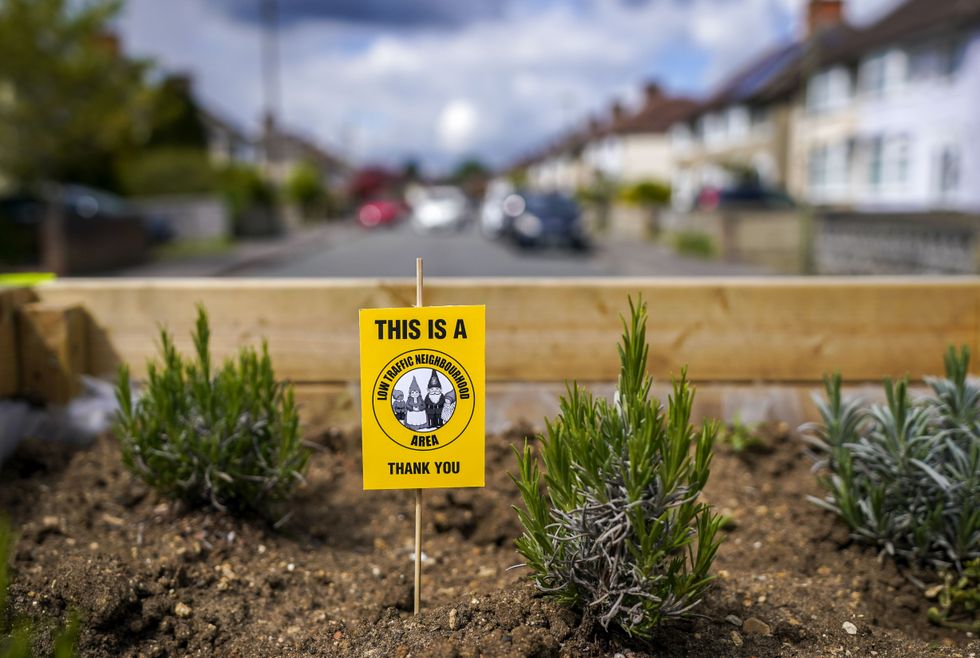Haringey Borough Council will consult on the LTN shortly
PA
Drivers have until September 20 to share feedback on LTN rollout
Don't Miss
Most Read
Trending on GB News
A popular London borough is set to green-light several Low Traffic Neighbourhood with residents urged to give feedback as soon as possible.
The proposed traffic measure has been issued by Haringey Council and will be put into fore across Bounds Green, St Ann’s and Bruce Grove West Green.
Before the schemes are rolled out, residents will have until September 20 to share feedback. The council has previously introduced the LTNs on an experimental basis in 2022 as part of the Streets for People programme.
The schemes aim to reduce the overall level of traffic within the boroughin a bid to prioritisewalking and cycling in cleaner air and safer streets.
Do you have a story you'd like to share? Get in touch by emailingmotoring@gbnews.uk

Drivers can be fined £130 for breaching LTN rules
PAAll three schemes were launched with a range of exemptions in place, including for Blue Badge holders living in the LTN areas.
Following extensive engagement, however, the schemes were extended in September 2023 to all Blue Badge holders living in Haringey.
The council will now consult on the impact of traffic, air quality, bus journey times, road safety and cycling data has been since the LTNs were launched.
Councillor Mike Hakata said: “Our low traffic neighbourhood trials have transformed hundreds of streets, helping us meet our objectives of reducing traffic, improving air quality, and creating safer, healthier, and quieter spaces for all.
“I understand this has been a significant change for our community. I want to thank everyone who has provided comments and observations both before and after the experimental schemes were introduced. Your feedback has been invaluable in helping us refine and improve these initiatives.”
He added that as well as carefully considering feedback, the council will also be looking closely at the monitoring results before making a final decision on whether to make the trials permanent.
“Our goal is to create a solution that works for as many residents as possible while addressing our environmental and safety objectives," he continued.
The trials were enforced by Automatic Number Plate Recognition (ANPR) cameras to stop drivers from breaching through the zones. Consultation with residents started as far back as February 2021 with the local authority taking feedback on board to change the LTNs over time.
As well as extending exemptions for Blue Badge holders, some filters were removed or changed. This included the council separately introducing a trial ban on HGVs on Downhills Way/Belmont Road in the Bruce Grove West Green scheme.
But with only a few weeks left until the council decides the fate of the LTN, drivers have been left furious over the suggested scheme.
One person questioned: “What is the point of asking for consultations when you never listen to residents? Consultations have clearly been a tick-box exercise for Haringey and never taken into consideration and usually after plans have already been agreed and signed for with contractors.
They continued: "LTNs are awful and have a hugely negative impact on our community, restricting access, the ability to get cabs late at night safely home, they cause additional and concentrated traffic and pollution, they stop family and friends visiting, have ruined businesses, caused lengthy delays for self-employed workers and public transport and hospital transport, to name but a few.”
LATEST DEVELOPMENTS:

Many LTNs were introduced in 2020 in the midst of the pandemic
PA“And for what purpose other than extorting money from residents? It hasn’t created streets full of playing children and it has now been scientifically proven not to reduce pollution."








